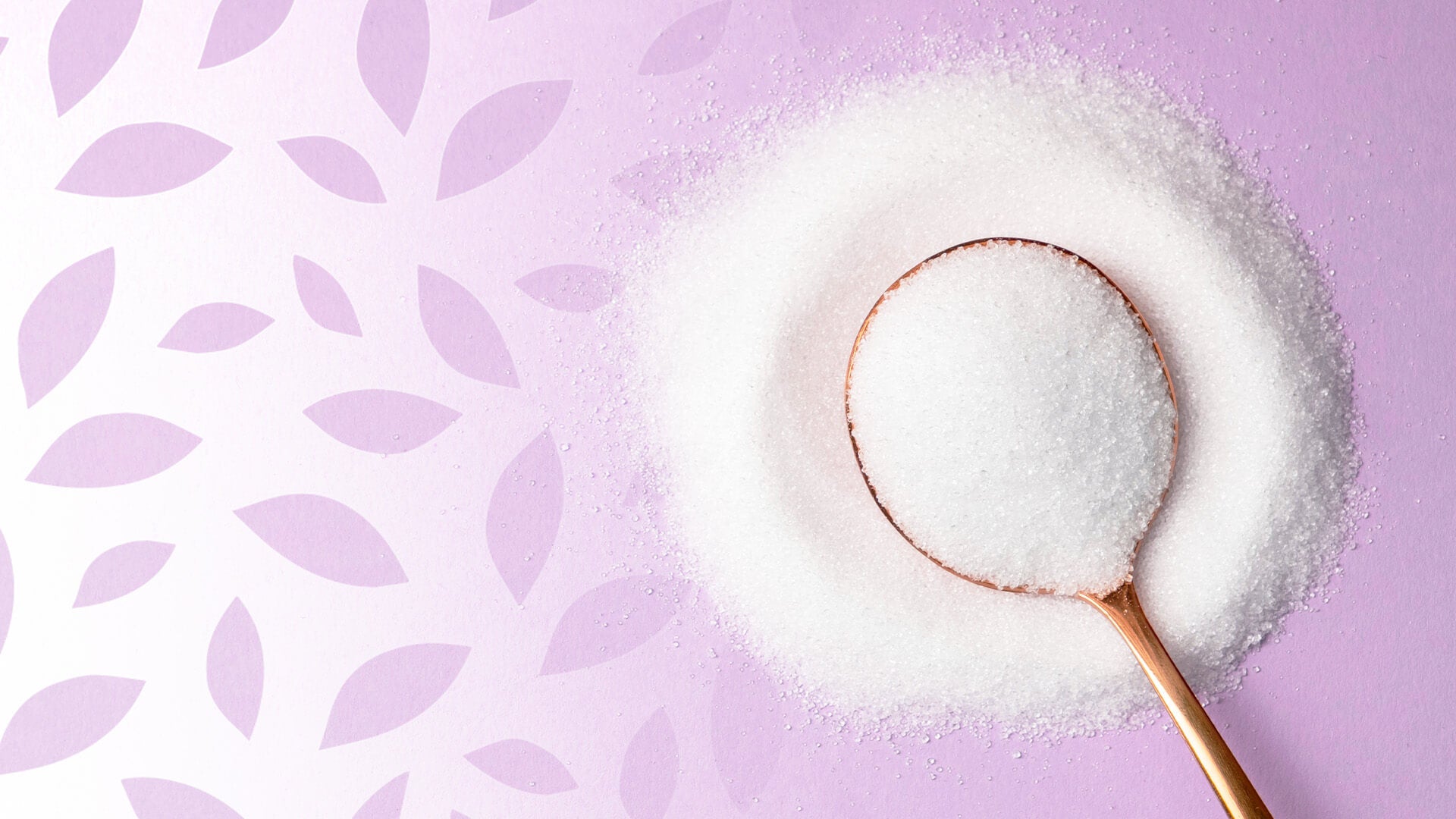
Crystal Clear Choices: Navigating the World of Stevia vs Erythritol
When it comes to sugar substitutes, Stevia and Erythritol are two options that people often consider. They've become pretty popular because, let's face it, people are looking for alternatives to regular sugar. In this article, we're going to break down Stevia and Erythritol including what makes them different, how they're used, and things you might want to think about. No fluff – just the facts to help you decide what works best for you.
Stevia 101
What is Stevia?
Stevia, derived from the leaves of the Stevia Rebaudiana plant, is a plant-based sweetener that has gained popularity as a sugar substitute. Known for its intense sweetness, Stevia's leaves contain compounds called steviol glycosides, which contribute to its sweet taste without adding calories. Often used as a sugar alternative in various food and beverage products, Stevia has found its way into the diets of those looking to cut down on traditional sugar consumption. Beyond its sweetening properties, Stevia is appreciated for being plant-based, making it an attractive option for individuals seeking alternatives to artificial sweeteners.
How Stevia is Made
Making Stevia is pretty straightforward. It all starts with the leaves of the Stevia Rebaudiana plant. Farmers harvest these leaves, and then put them through a drying process to remove the water content. Once they're dry, the leaves are steeped in water, a bit like making tea. This helps draw out the sweet steviol glycosides – the natural compounds responsible for Stevia's sweetness. After the steeping, it's filtered to get a clear liquid that's then purified and dried to form a white powder or liquid concentrate. The result? A sweetener that comes straight from nature without the calories of sugar.
Erythritol 101
What is erythritol?
Erythritol, often classified as a sugar alcohol, is gaining traction for its distinctive attributes. While it occurs naturally in certain fruits like pears and grapes, commercial production typically involves fermenting glucose with yeast. What sets erythritol apart is its sweet taste minus the calories – it's practically calorie-free, well-tolerated by most people, and is known to be the most tolerable of the sugar alcohols. For those seeking a sugar reduction without compromising on sweetness, erythritol has become a popular choice. Its presence can be noted in a range of sugar-free and low-calorie products, spanning beverages to baked goods, offering a palatable alternative for those conscious of their sugar consumption.
How Erythritol is made
Erythritol is produced through a process that involves fermenting glucose, typically derived from corn starch, with certain types of yeast. This fermentation process leads to the formation of erythritol crystals. Once the fermentation is complete, the mixture undergoes filtration to separate the erythritol from the yeast. The resulting liquid is then purified and crystallized, resulting in a powder that resembles conventional sugar but without the caloric impact. It's worth noting that the method of production allows erythritol to maintain its sweet taste while being virtually calorie-free. This makes it an appealing option for those seeking a sugar substitute with reduced caloric content.
Stevia vs Erythritol: Differences
Source
Erythritol
A sugar alcohol, erythritol is usually produced through the fermentation of glucose, commonly derived from corn starch.
Stevia
Stevia is a plant-derived sweetener extracted from the leaves of the Stevia Rebaudiana plant.
Taste
Erythritol
It provides a sweet taste similar to sugar but is about 70% as sweet as sugar. It has a slight cooling sensation, especially when used in high concentrations.
Stevia
Stevia has an intense sweetness that is 250- 300 times greater than sugar, with a slight licorice-like or herbal taste in some formulations.
Processing
Erythritol
Commercially produced through a fermentation process, but it can also occur naturally in certain fruits.
Stevia
Extraction starts directly from the leaves of the Stevia Rebaudiana plant.
Uses for Erythritol and Stevia
Beverages
Both erythritol and stevia are handy for sweetening drinks, from sodas and iced tea to coffee and fruit juices.
Sugar-Free Chewing Gum
Erythritol's cooling effect and stevia's intense sweetness make them common ingredients in sugar-free chewing gum and toothpaste because they do not cause tooth decay.
Candies and Confections
Erythritol and stevia are used to add sweetness to sugar-free candies, chocolates, and confections.
Low-Calorie Snacks
Erythritol is often used in low-calorie snacks, providing sweetness without additional calories.
Yogurts and Dairy Products
Both sweeteners are applied in sugar-free or low-sugar yogurts and other dairy products.
Tabletop Sweetener
Stevia, in various forms, and erythritol in granulated form, are popular choices as tabletop sweeteners for beverages or meals.
Flavored Water and Sports Drinks
Stevia is more commonly found in flavored water and sports drinks, providing sweetness without the need for added sugars.
Baking and Cooking
These sweeteners are practical baking substitutes for sugar in recipes, performing well in cookies, cakes, sauces, and various cooked dishes. However, it's crucial to consider conversion ratios to achieve the desired recipe outcome when substituting.
Erythritol Impact on Texture and Structure in Baking
Erythritol's crystalline nature significantly influences the texture of baked goods. As a sugar alcohol, it forms crystals during baking, creating a light and airy consistency in cookies, cakes, and other treats. Its interaction with ingredients like flour and fats contributes to the overall structure. Erythritol's unique properties, including moisture retention and calorie-free sweetness, make it a versatile ingredient for achieving delightful textures in baked goods (check out our Stevia vs Sucralose comparison for more sweetener breakdowns)
Erythritol vs. Stevia: Which is Better for you?
Choosing between Stevia and Erythritol comes down to what you like and your dietary goals. Stevia’s intense sweetness comes from a plant, while Erythritol, a sugar alcohol, offers great versatility. Whether you're into plant-based sweetness or lean toward virtually calorie-free options, both have their perks. Both are keto, low glycemic index, and sugar-free – sweet without the calories. Find what suits your taste and try them out for a delightful sugar-free experience!

